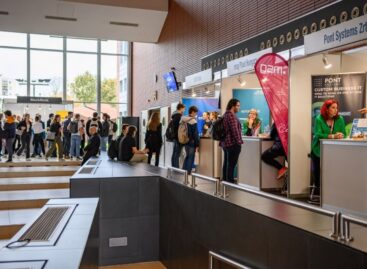For six out of ten employees, the distance from the workplace was already a disqualifying reason when looking for a job
In Hungary, the majority of employees work in the same settlement as their place of residence. Half of the workers spend less than half an hour a day traveling between their workplace and home, which is mostly solved by public transport. Every second employee receives financial support in this area from their employer, but there are another 17% who, although they could take advantage of the opportunity to contribute, do not use it – according to a recent, representative survey by Profession.hu.

Profession.hu conducted its latest research on the commuting habits of domestic employees, the amount of time spent commuting, the means used for this purpose, and the employers’ contribution to travel costs.
Hungarian employees typically avoid commuting and, if they can, prefer workplaces located nearby. Currently, six out of ten employees work in the same settlement as their place of residence. Most commuters (35%) travel from a village to a city for work, 29% travel from a city to another city, 8% travel from a city or village to another village to work, and nearly a quarter of them travel to the capital for this purpose. In contrast, only 4% of commuters from Budapest go to work in another settlement.
Half of the employees travel less than half an hour a day in total between their workplace and home, a third of them spend between half an hour and an hour, while 20% spend up to 1-2 hours commuting. However, the majority would like to avoid this, so much so that the distance between the two locations can even be a decisive factor when looking for a job: six out of ten workers have had a job opportunity in their life that they did not apply for simply because it would have taken too much time to get to the workplace. This rate is higher for freelancers (81%) and for those who can freely decide whether to go to work or do it from home at their current workplace.
Related news
Gross from 600 thousand to 1.5 million: numbers also reduce the anxiety of career starters
🎧 Hallgasd a cikket: Lejátszás Szünet Folytatás Leállítás Nyelv: Auto…
Read more >Related news
Nestlé to sell remaining ice-cream assets but commits to Froneri venture
🎧 Hallgasd a cikket: Lejátszás Szünet Folytatás Leállítás Nyelv: Auto…
Read more >Lidl guarantees fairer prices for cocoa farmers
🎧 Hallgasd a cikket: Lejátszás Szünet Folytatás Leállítás Nyelv: Auto…
Read more >








